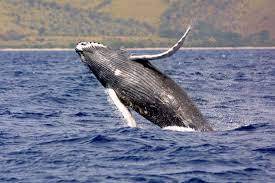Whales, the majestic giants of the ocean, continue to captivate our imagination with their immense size and mysterious behaviors. These magnificent marine creatures play a vital role in the health of our oceans and offer us a glimpse into the wonders of marine life. Here are five essential facts to broaden your knowledge about these incredible beings.
Diverse Species: Whales encompass an incredible diversity of species, each adapted to a specific ecological niche. From the enormous blue whale, the largest animal on Earth, to the acrobatic humpback and the elusive narwhal with its iconic tusk, there are about 90 distinct whale species that inhabit oceans around the globe.
Intelligent Communicators: Whales are known for their advanced communication skills. Many species use complex songs, clicks, and other vocalizations to communicate with one another across vast distances. The songs of humpback whales, for instance, are among the most intricate in the animal kingdom, and they are thought to serve purposes ranging from mating rituals to establishing territory.
Migratory Marvels: Several whale species undertake some of the most impressive migrations on the planet. Gray whales, for instance, travel up to 12,000 miles between their breeding grounds in warm waters and their feeding areas in cold seas. These migrations play a crucial role in distributing nutrients and supporting ocean ecosystems.
Keystone Species: Whales are considered keystone species, meaning they have a disproportionately large impact on their ecosystem compared to their abundance. Their feeding habits help regulate prey populations and redistribute nutrients through the water column, influencing the health of marine ecosystems on a global scale.
Conservation Concerns: Despite their significance, whales face numerous conservation challenges. Issues such as habitat degradation, entanglement in fishing gear, ship strikes, and climate change impact their survival. Efforts to protect and conserve these creatures include international agreements, marine protected areas, and research on their behavior and ecology.
In conclusion, whales are not just symbols of the oceans' grandeur; they are essential components of marine ecosystems, showcasing the wonders of evolution and adaptation. Understanding and protecting these remarkable beings are crucial for maintaining the health and balance of our planet's oceans for generations to come.




No comments yet
Be the first to share your thoughts!